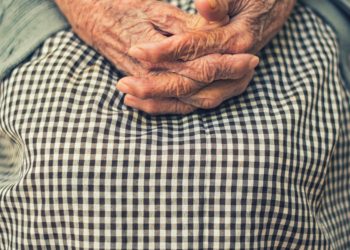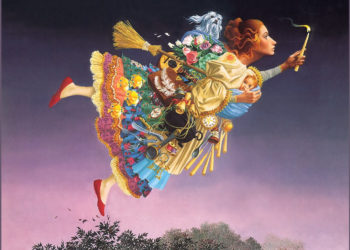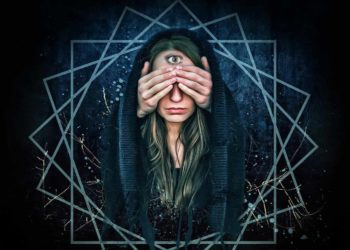Performativity and exhibitionism are two of the most enduring and pervasive problems in our intensely narcissistic society.
Social media enables it.
The business ecosystem enables it
Politics enables it
In fact, most organized systems of human interaction enable it.
This is the reason mental health issues are often not taken seriously. Depressed people get the trying-to-be-deep brass tag.
Suicidal people get labeled attention-seeking snowflakes.
We use the term OCD with so much levity that actual victims are just pooh-poohed and told to get their act together.
On my side of the globe, mental health issues are like the pink elephant in the room.
It’s weird, we don’t talk about it and we believe something foreign probably brought it.
We pride ourselves on being emotionally and psychologically resilient. On being impervious to invisible, “millennial” illnesses like depression- even while sitting on a mental health epidemic waiting to erupt. In fact, there is this common misconception that Nigerians are the happiest people in the world, which isn’t true. Finland holds the title. What we have is a superficial kind of happiness that is a product of sublimation; a defense mechanism where humor is weaponized to avoid thinking about your problems. So when one of us boldly admits to struggling with mental health issues, they get:
- The evil eye
- The tough love treatment
- Or what I call the Halloween assumption
And it is this Halloween assumption that I want to talk about.

The Halloween assumption is a situation where someone believes your battle with mental health is one big, elaborate performance. Basically, a mental health trick or treat where you garb yourself in, say depression, and anxiety, and go a-witching, hoping someone notices you. The whole charade ends with you “treating” them when they respond in a good way and deciding to give life the good ol’ college try or “tricking” them with words, suicide (attempts), or any other “over-the-top reaction” when they don’t.
And I understand where this impression comes from. On social media platforms, “Depression” and a couple of other mental health issues have become buzzwords for cool, deep, hip, and fashionably troubled. Then there’s the Nigerian situation. Nigeria as a whole is a consumerist society. We consume the antics, mannerisms, behaviors, slangs, culture, dispositions, and affectations of other countries. This is why words like “fam” and signing off emails with “cheers” and “cheerio” are all the rave now. This penchant for consumerism is not a bad thing and can actually make a person something of an enfant du monde, benefiting heavily from different societies and cultures of the world. However, it has its pitfalls as there is a tendency to absorb the negatives along with the neutrals and the positives.
Many Nigerians believe the incline of depression and mental health issues in the country is not because of the tendency people (especially the young) have to assimilate and copy all they see on TV and social media. Thus, mental health issues are parceled up and labeled as a reproduction of foreign-bred emotions. This is where the Blackstone formulation comes in.

In criminal law, the Blackstone ratio or formulation states that:
It is better ten guilty people escape than one innocent person suffers.
I think we can stretch this ratio to cover the Halloween Assumption. It is better we save ten Halloweeners and one truly afflicted person in the mix rather than labeling them all as Halloweeners and watching as another one bites the dust. The sentiment that Africans don’t get depressed is one I have heard echoed thousands of times. And when they see someone show all the textbook signs of depression and other mental health issues, it is still not believed. To me, this seems like a communal form of gaslighting where people repeatedly invalidate other people’s personal experience because it does not fit into the tidy, little picture of what they imagine being African or Nigerian to be.
Humanity is an oxymoron of sorts. It is so resilient yet so fragile, like glass wrapped in the strongest leather. And we should acknowledge and respect both of its facets. No group of people has a monopoly on either fragility or resilience. We all have an equal propensity for both.
Although we have a collective lived reality as citizens of the same nation, we shouldn’t, because of the bigger picture, discredit the individual, pixelated lives of others that might differ from the tone of our life. While discussing an issue, my younger brother used a very insightful analogy that I would extend here. He said, “If you keep perfume and a heap of shit in a room, no matter how well scented the perfume is, the shit will draw more attention.”
This is why breakups and messy divorces get more airtime than happy and enduring relationships and marriages.
This is why toxic individuals have somehow hijacked the role of the protagonist in the story of life, while good and empathic people bring up the rear.
This is why people have made “people that are faking it” the centerpiece of the mental health narrative, whereas thousands of people are languishing in mental purgatory.
The Halloween assumption has to stop. For each person who fakes mental health illness, on or offline, there are 100 people battling demons most of us will never understand. For each fake, attention-seeking “depression” post, there are thousands of posts that are a last-ditch attempt at seeking help. And it is this one person who should be our focus. The salvation of this marginal piece of humanity is the priority and we shouldn’t lose sight of that. To end, I will leave you with a paraphrase of a quote by John Adams:
“It is of more importance to the community that people with mental health issues should be protected, than it is, that pretenders be called out; for pretense and crimes are so frequent in this world, that all of them cannot be called out…for when a suicidal person comes at that mortal crossroad, the subject will exclaim, ‘it is immaterial whether I live or die for the veracity of my dilemma and reality are no security. And if such a sentiment as this were to take hold in the subject’s mind, that would be the end of all sorts of mental security…”
Originally published on Medium.
For more articles on mental health, check out 10 Things Depression Is Not and The Power of Negative Visualization
If you prefer articles on the shared reality of being Nigerian, check out Nigeria Jaga Jaga: A Nigerian Manifesto in Eleven Declarations and The Business of Hope and the Economics of Religion in Nigeria








Comments 2